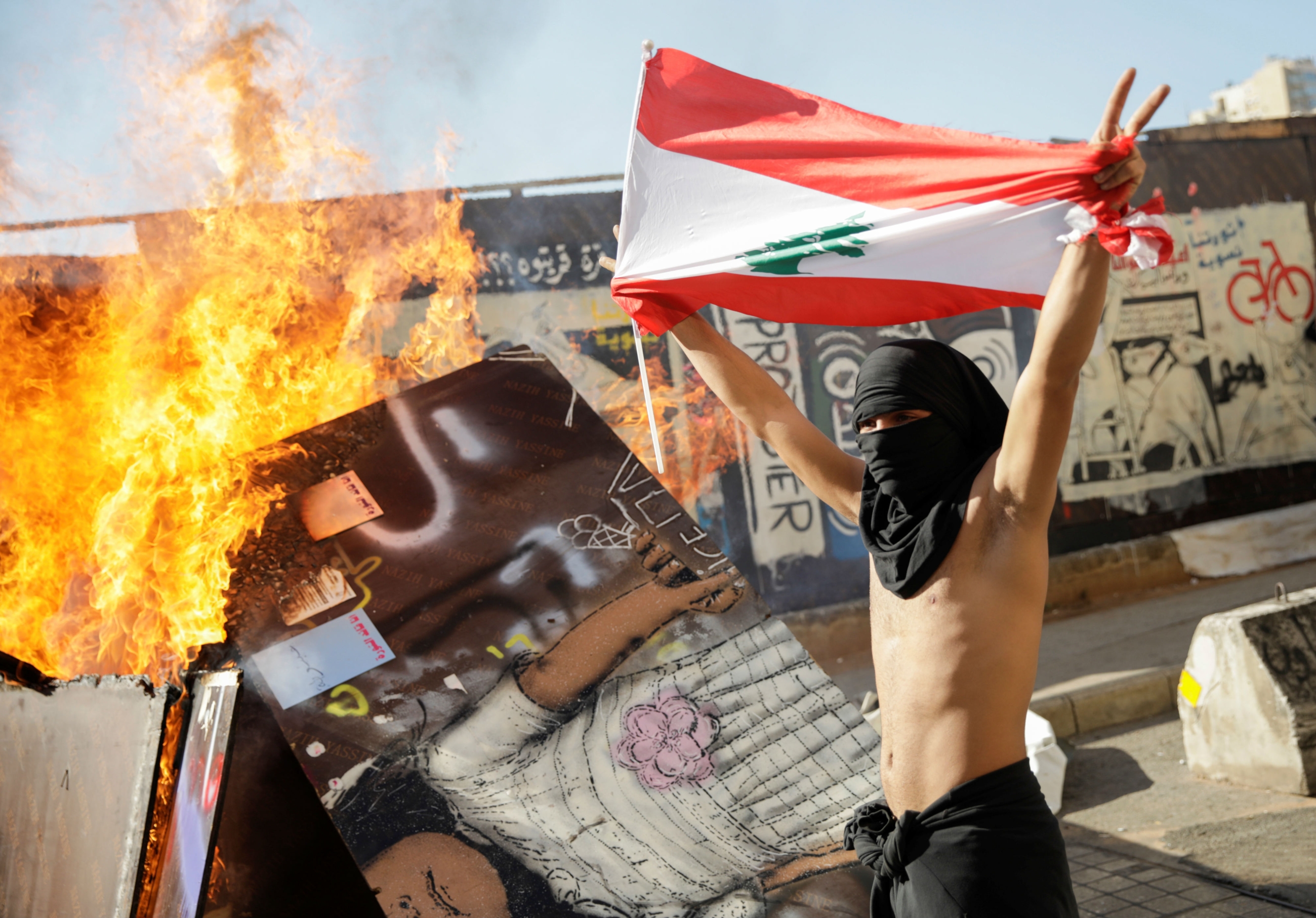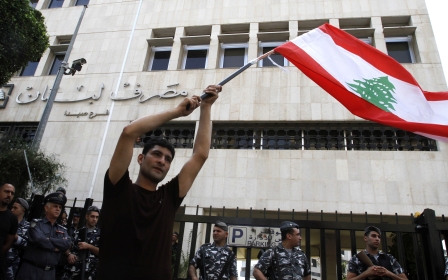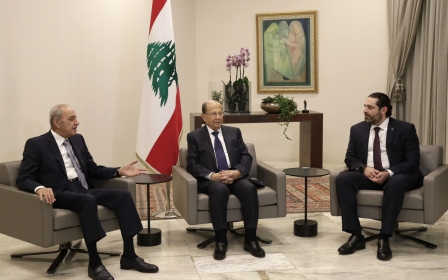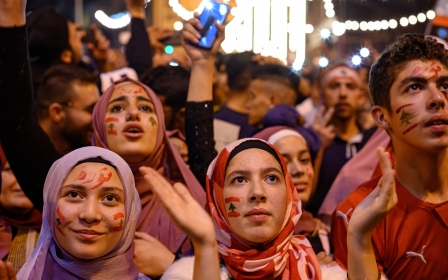Lebanese protesters thwart attempt to hold controversial parliament session

Attempts to hold Lebanon's first parliamentary session since protests erupted last month were thwarted on Tuesday as protesters blocked MPs from entering parliament.
The mood was tense as demonstrators and MPs headed to Downtown Beirut.
Repeated gunfire was heard, and video footage circulating online shows protesters setting upon two black SUVs with official number plates chanting "out, out, out", forcing them to turn back as they approached parliament.
Demonstrators tipped metal fences in the path of the vehicles as they sped away, the footage showed.
New MEE newsletter: Jerusalem Dispatch
Sign up to get the latest insights and analysis on Israel-Palestine, alongside Turkey Unpacked and other MEE newsletters
Security forces blocked off many streets in the city's centre and scuffled with protesters, who attempted sit-ins.
Demonstrations have paralysed Lebanon since 17 October, when a series of proposed tax hikes brought hundreds of thousands of Lebanese onto the streets. They have called for an end to corruption and the removal of Lebanon's sectarian and ineffectual political class.
“Their only power now is using guns, risking the lives of their people - how isn’t this enough reason for them to resign?” architect and protester Ranine Daoud told Middle East Eye.
'Their only power now is using guns, risking the lives of their people - how isn’t this enough reason for them to resign?'
- Ranine Daoud, architect and protester
Roadblocks and strikes have sought to force in a new, technocratic government following the resignation of Prime Minister Saad Hariri on 29 October.
Attempts to hold a parliament session last week were scrapped when it became clear that protesters would resist any attempt to convene MPs until their demands were met.
With the vast majority of MPs unable to reach parliament, Tuesday's session was postponed citing a lack of quorum.
Hariri's Future Movement parliamentary block announced earlier in the day that it was boycotting the session.
MPs were set to consider an amnesty law, which campaigners say could exonerate people convicted or suspected of involvement in financial misconduct.
Under Lebanese law, parliament is obliged to convene for consultations over appointing a new prime minister before considering any legislation.
“In the constitution that I have seen, when a government is dissolved the first session should be in the aim of creating a replacement government, not continue as if nothing is happening,” Daoud underlined.
Ali Hassan Khalil, the caretaker finance minster, told reporters outside parliament: "This confrontation should not happen".
"Protesters have the right to demonstrate but lawmakers also have the right to go to perform their duties," he said.
Metres away however, angry demonstrators massed outside the Grand Theatre, a wartime ruin left to rot by politicians and property developers.
“We’re living under a dictatorship,” protestors shouted as they occupied the abandoned French Mandate-era building.
Middle East Eye delivers independent and unrivalled coverage and analysis of the Middle East, North Africa and beyond. To learn more about republishing this content and the associated fees, please fill out this form. More about MEE can be found here.




